
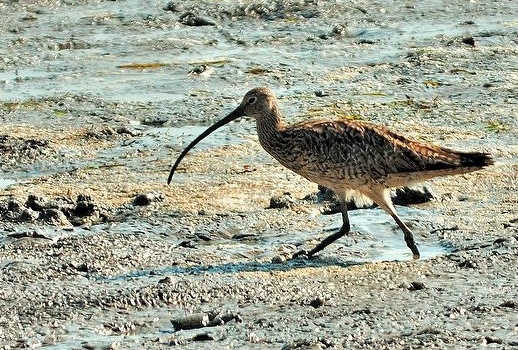
The Willson Theater on the third floor of the school is a square the size of a large classroom. There is no stage and no orchestra pit; opera is very close to the audience, who line the walls. This enhances creativity—I saw a fine production of Gluck’s Armide there, years ago. For Curlew River, Alexis Distler’s set was two wheeled platforms of unfinished wood doing service as a ferryman’s boat and a tomb, opening up to beds of gray gravel.
A startling “rain” of gravel was a door between the worlds to see a ghost through. In Riders to the Sea, one platform became the house for luckless Irish fisher-folk; the other a graveyard. Sydney Maresca’s costumes were gray or white or earth-toned, with much woollen knitwear—peasant chic.
John Giampietro’s production made use of simple gesture effectively elided with the way music stretches lines of speech. He kept the chorus present but low, on the ground, out of distraction’s way, yet participating, constantly attentive so that we felt they spoke for us, that they observed as solemnly as we did the two bitter parables.
Mark Shapiro led the small orchestra, spread out around the room, and played the piano for Riders to the Sea.
Curlew River’s dissonant braid of Chinese Japanese classic, Christian mystery and modern declamatory idiom of speech-song was especially well-served, its deceptively naturalistic ritual touching, archaic and modern at once. Vaughan Williams’s far less moving piece was a let-down.
Part of the problem may be that the libretto is a play by Synge, its language lilting Irish-English. The student singers did not make the syllables fall in the proper jaunty corner of the mouth; the idiom seamed affected, off-putting, with flat American vowels.
Curlew River is set in a generic mythical landscape, somewhere in China Japan but mostly in the world of holy mystery. Particular accents are not required; only exquisite diction, on the evidence a major concern of the Juilliard program. (There were no “titles,” and every word was clear.)
Too, in Riders, Vaughan Williams’s rather tuneless sprechstimme does not give rise to music to wash over the story until its inevitable conclusion. The orchestra for Curlew River was attractively cut down and spread about the room, one singer pushing (and beating) a gong, the flautist entering the “play” to taunt the Madwoman with fluted cries of her lost child and the taunting curlews over the river.
The singers were all of them gifted, attractive and eager to seize the stage. Tenor Kyle Bielfeld expressed his inner Madwoman with dignity, revealing the aristocratic and tragic figure who arouses respect among her rough fellow travelers. Tobias Greenhalgh portrayed and sang the Ferryman with sturdy authority, sometimes while poling a raft full of singers.
Emmett O’Hanlon sang the Traveller who leads us into the story in a way to prepare us for a proper legend. Ying Fang sang the Boy’s Spirit with a soprano of bell-like purity—Britten wanted a boy soprano, but Fang’s Mozartean instrument was a sublime substitute.
Riders to the Sea was probably chosen by the company as a setting for Lacey Jo Benter’s deep, resonant contralto, as the bitter, too-much-bereaved Maurya. This it did, though without overwhelming the contributions of Simone Easthope and Laura Mixter as her daughters or Emmett O’Hanlon’s brief lines as the last of her six drowned sons.
Her final threnody and the women’s chorus that breathe with it are the only reasons to hear the opera, but they did not pack anything like the punch of Britten’s mystery.














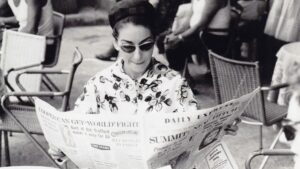
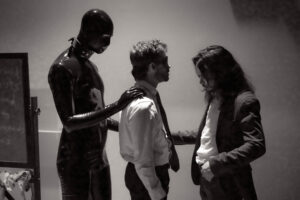

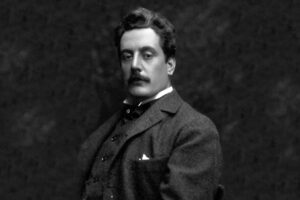
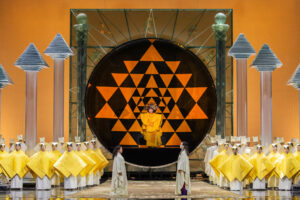






Comments